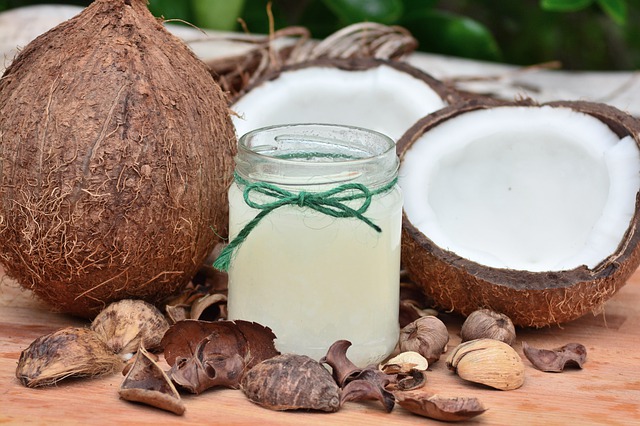Is Coconut Oil Actually Good For You?

There is no arguing that coconut oil is very trendy right now. All you have to do is search Google for coconut oil, and you will come across many blogs and articles stating the beauty uses and health benefits. The fact of the matter is there is little concrete evidence to support most of the health benefits.
What Makes Up Coconut Oil?
Coconut oil has a long shelf life and changes from a solid to an oil when the temperature is above 76 degrees Fahrenheit. It is colorless in oil form and white in its solidified form. Moisture content varies based on the coconut source, the extraction method, and the processes it goes through. For example, virgin coconut oil is derived from fresh coconut and will have more moisture. This oil is mainly composed of saturated fatty acids, with a large percentage being medium-chain fatty acids.
Topical Uses
Very few people develop an allergy to coconut oil. It contains vitamin E, which is part of what contributes to young skin and healthy hair. Along with canola oil and mineral oil, you can use it to soothe dry, cracking skin and moisturize hair. Several hair and skin care products use coconut oil. For home remedies, the ease with which it can go from solid to oil form makes raw coconut oil an ideal moisturizer for some. Also, putting a small amount of coconut oil in your hair can help prevent the sun from drying it out and help protect hair by creating a barrier between the follicle and chlorine or saltwater. As we all know, the sun can wreak havoc on your skin and hair. Some cultures practice oil pulling, to help whiten teeth, help prevent tooth decay and cracked lips.
Nutritional Purposes
There are mixed opinions on the health benefits of ingesting coconut oil. Some believe that medium-chain fatty acids can increase metabolism rate, which may aid in weight loss efforts. The fats in the oils are a good source of energy, so they can help fight fatigue from malnutrition. As far as cholesterol goes, coconut oil contains lauric acid, which raises HDL levels and may have a positive effect on your cholesterol. Furthermore, virgin coconut oil has more medium-chain triglycerides, which are not as ‘bad’ as other saturated fats. While many sources spout the health benefits of using this type of oil, there are no long-term studies that show its effect on cholesterol levels, according to Harvard School of Public Health M.D., Walter C. Willett.
Got Medicare Questions?
We hope that this information on coconut oil is useful to you.
Let us help you answer your questions so you can get back to the activities you enjoy the most.
Call (888) 446-9157, click here to get an INSTANT QUOTE, or leave a comment below!
See our other websites:
Follow us on social media for more information about health and wellness!
Get affordable health insurance quotes by clicking here.

